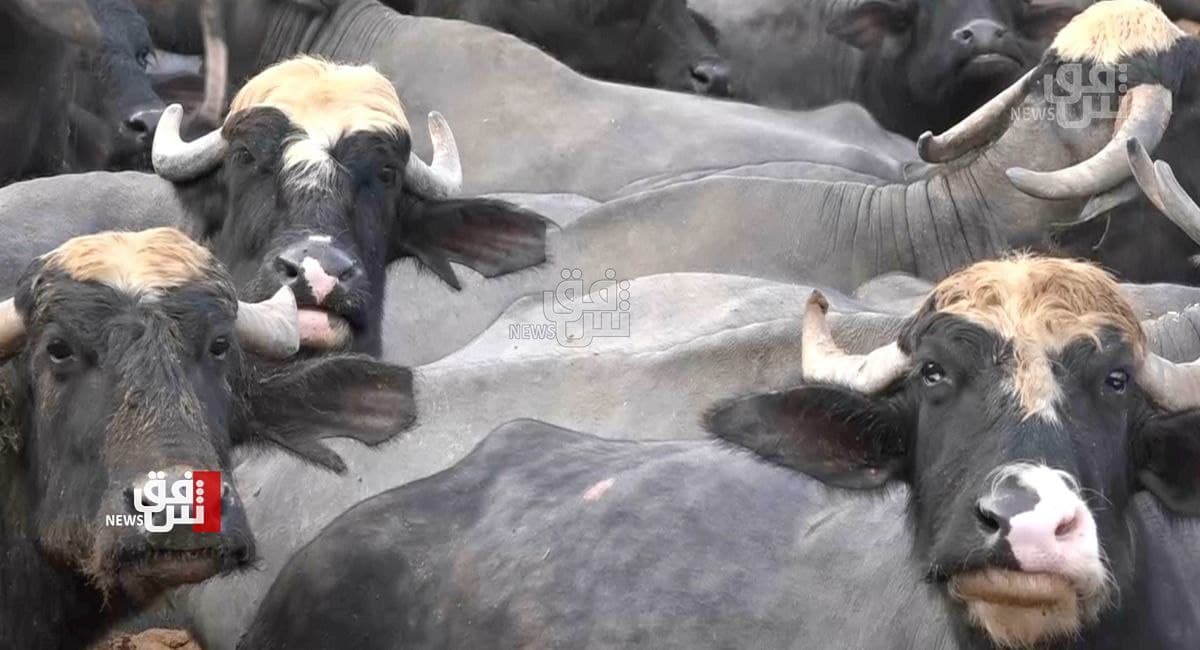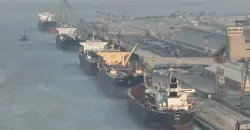Water scarcity and deteriorating livestock pose a threat to Iraq's food security

Shafaq News / Against a backdrop of mounting calls to address the ongoing crisis and modernize agricultural land irrigation techniques to reduce water consumption, experts are sounding the alarm over the rapid deterioration of livestock in central and southern Iraq. This is due to an unprecedented decline in water levels, coupled with desertification and heightened salinity, which is expected to lead to a marked reduction in animal numbers and productivity.
Despite the fact that summer has yet to arrive, Iraq has already been grappling with record-low water levels for several weeks, with the Tigris River in Maysan Governorate, located in southern Iraq, being particularly hard hit. This dire situation foreshadows a looming food crisis, brought on by the widespread drying up of cultivated land and the untimely deaths of thousands of animals, most notably water buffaloes.
According to Hussein Mardan, the deputy chairman of the parliamentary agriculture committee, water scarcity in Iraq can be attributed to a range of factors, most notably Turkey's decision to establish numerous dams, despite prior agreements mandating the allocation of a portion of that water to Iraq. In addition to this, the lack of rainfall, as well as multiple violations on the Tigris and Euphrates rivers, and their tributaries across governorates, cities, villages, and rural areas, have all played a role in exacerbating the water crisis.
Furthermore, Mardan noted that the presence of over 20,000 unauthorized fish lakes, coupled with farmers encroaching on the agricultural plan, where cultivation currently extends over five million dunums, compared to the plan's intended one million and eight hundred thousand dunums, have also contributed to this dire situation. As a potential solution, it is expected that measures such as the lining of rivers with concrete and the adoption of modern irrigation technologies will be implemented in the coming days to minimize water wastage and enhance conservation efforts.
According to esteemed agricultural expert Dr. Khattab al-Dhamen, the severe and interconnected issues of desertification, heightened salinity, insufficient fodder, and escalating import prices pose a grave threat to livestock numbers and productivity, particularly in the marshes, central, and southern regions of Iraq. These alarming factors, if not addressed effectively and urgently, have the potential to upend food security across the country.
Salma al-Hassani, a journalist affiliated with the local union of agricultural cooperative societies in Basra, expounded on the severe impact of drought and water salinity on the agricultural sector in the marshes and parts of northern Basra. She pointed out that last summer's water shortage resulted in the deaths of over 5,000 water buffaloes, incurring significant losses for breeders.
In her statement to Shafaq News Agency, al-Hassani argued that the local and central government cannot be solely held accountable for the current crisis. She explained that Basra's geography is such that all the country's rivers flow into it, and thus it necessitates large water releases to be completely submerged. Moreover, water salinity and pollution have pushed marsh residents to seek refuge in other regions.
From the Diwaniyah governorate, Um Ali recounted how she was compelled to sell her three water buffaloes - two last year and the last one recently - due to water and fodder shortages. Um Ali further elaborated that she had to relocate to the city in search of alternative employment.





